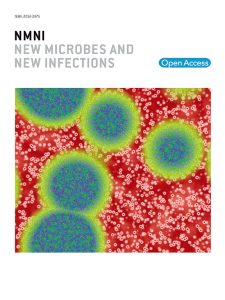The publisher Elsevier is investigating an unspecified number of articles by authors affiliated with a French research institute for concerns about “the appropriate conduct of research involving human participants.”
According to a “Publisher’s Note” that appeared November 9 in Elsevier’s New Microbes and New Infections, “concerns have been raised about a number of articles” published in the journal by researchers affiliated with the Institut Hospitalo-Universitaire Méditerranée Infection (IHU-MI) in Marseille.
The journal and Elsevier’s “Research Integrity and Publishing Ethics Centre of Expertise” are investigating the allegations “by confidentially consulting with the authors and, where necessary, liaising with the institution where the studies took place,” the note said. It continued:
Expressions of Concern will be issued to articles published in NMNI if it is deemed that there is a particular need to alert readers to serious concerns while investigation is ongoing.
These Expressions of Concern will remain appended to the articles until the investigation has concluded, and the journal has taken any further action deemed necessary (which may include updates to the Expressions of Concern). In instances where a permanent correction is deemed necessary, the journal will make appropriate corrections to the record, in accordance with Elsevier policies.
The journal wishes to thank those who have alerted us to these concerns.
The notice did not state which articles, or even how many, are under investigation, and an Elsevier spokesperson did not answer our direct questions about the matter. Instead, the spokesperson provided this statement, which indicates the publisher’s investigation extends beyond a single journal:
We have recently published a “Publisher’s Note” at New Microbes and New Infections which outlines our approach to an ongoing investigation into articles authored by researchers from IHU – Méditerranée-Infection, Marseille. In addition to papers published in NMNI, a central investigation is being conducted by the Elsevier Research Integrity and Publishing Ethics team that is assessing articles from IHU – Méditerranée-Infection, Marseille published in other journals.
In accordance with COPE guidelines, we are currently discussing these articles with both the authors and field experts as a matter of due process, and where any corrections to the record are deemed necessary, these will be clearly communicated online in due course.
Didier Raoult, the French infectious disease scientist who came to prominence for promoting hydroxychloroquine as a COVID-19 treatment, last year retired as director of IHU-MI, which he had overseen since 2011. His departure followed an inspection by the French National Agency for the Safety of Medicines and Health Products that found “serious shortcomings and non-compliances with the regulations for research involving the human person.”
Raoult has not responded to our request for comment.
A group of researchers identified 456 clinical studies by authors affiliated with IHU-MI with “serious concerns on the ethics approvals of the trials,” such as nearly 250 that use the same ethics approval number despite significant differences in design. Of the studies they flagged with ethical concerns, 135 were published in New Microbes and New Infections.
The critics published their findings, as well as their correspondence with editors and publishers of journals where the studies with ethical concerns had appeared. Their records indicate that Elsevier has been aware of their concerns since July 2022.
Even after the article was published in August containing a figure identifying journals that had published more than three papers with ethical concerns, nothing seemed to happen, Lonni Besançon and Fabrice Frank, two of the article’s authors, said in an interview with Retraction Watch before Elsevier’s note was published.
“I guess this speaks to the accountability of publishers about them publishing potentially fraudulent science,” Besançon said. “I don’t think they care much.”
The Springer Nature journal Scientific Reports in October retracted two papers the sleuths had flagged, which Besançon hoped would spur the publication of expressions of concern for other articles. Such notices “would have been the right course of action when we reached out to editors initially,” he said.
Last December, the publisher PLOS marked nearly 50 papers by Raoult with expressions of concern while it continued to investigate the ethics approvals. The sleuths had reported 12 articles to PLOS, Frank said, and he wonders how many more articles have issues than have been publicly flagged: “Maybe we have seen only the part of the iceberg that is outside of the water and not the whole one below.”
Like Retraction Watch? You can make a tax-deductible contribution to support our work, subscribe to our free daily digest or paid weekly update, follow us on Twitter, like us on Facebook, or add us to your RSS reader. If you find a retraction that’s not in The Retraction Watch Database, you can let us know here. For comments or feedback, email us at [email protected].
